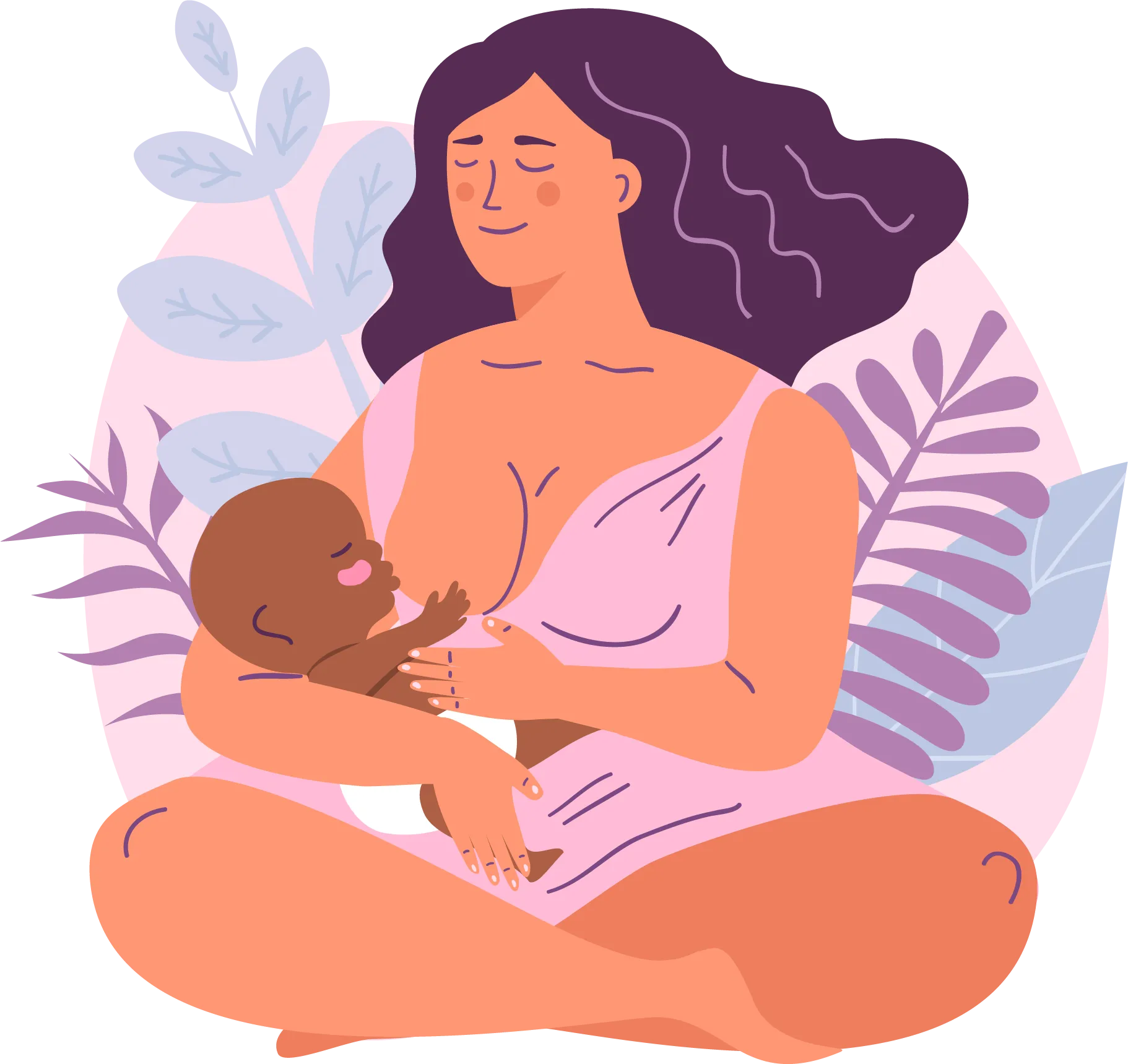Our post partum care units 2B & 2G
The maternity ward consists of 2 units: 2B and 2G.
Welcome to the post-partum care unit
Most of the wards have private rooms.
In addition to the standard furniture found in all hospital rooms, we would like to draw your attention to some special features.
You will find a piece of furniture with a bath for the baby and a changing table, an accompanying person's bed that can be stored in a cupboard during the day, a bedside table and a cupboard secured by a code. The curtains can be operated from your bed using the ‘doorbell’ remote control.
There is also a television, on which you will find lots of information, including how to use the bedroom furniture and the opening hours of the Auderghem registry office.
You can also order your meals ‘à la carte’ and watch videos on a variety of subjects.
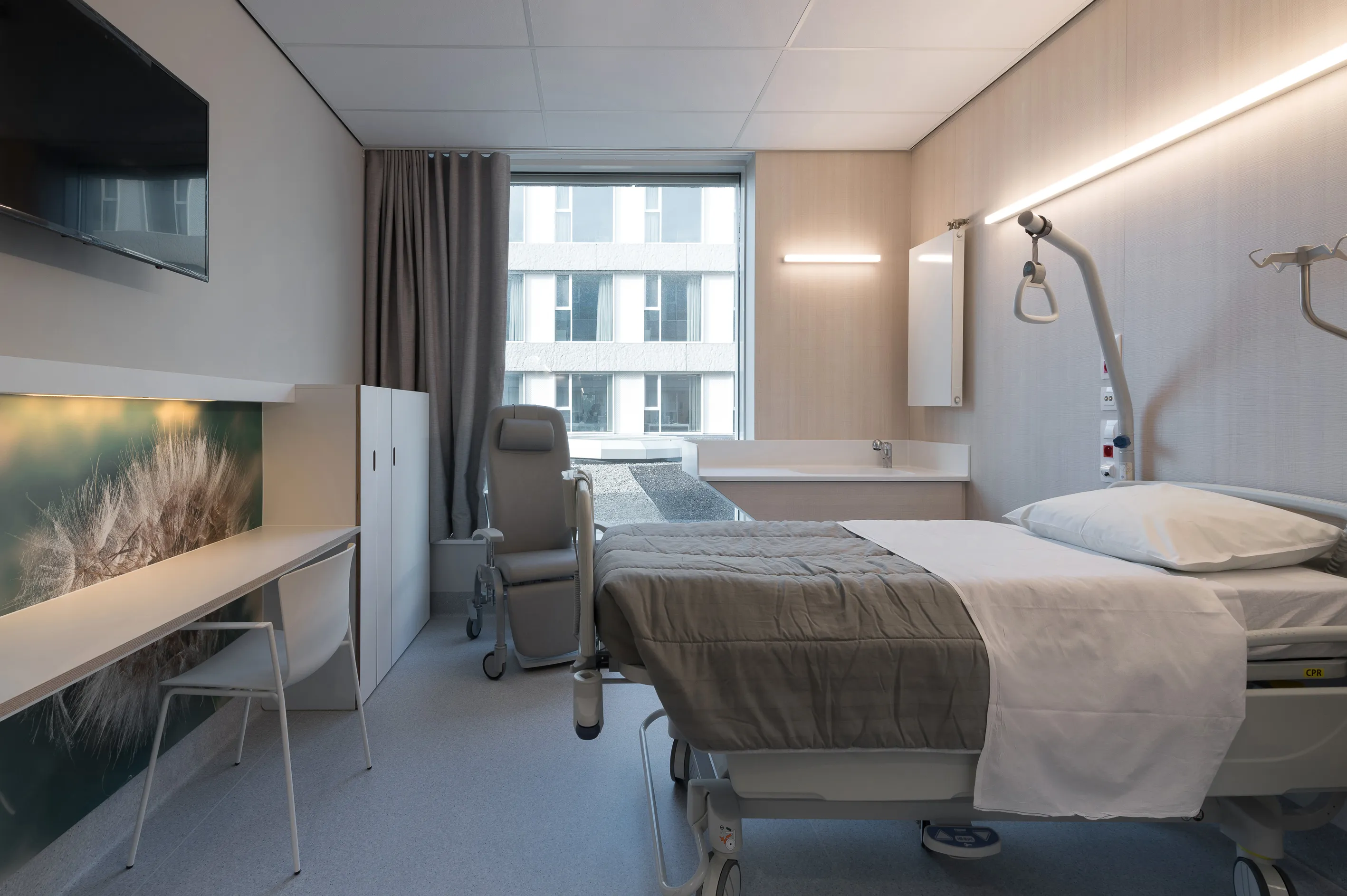
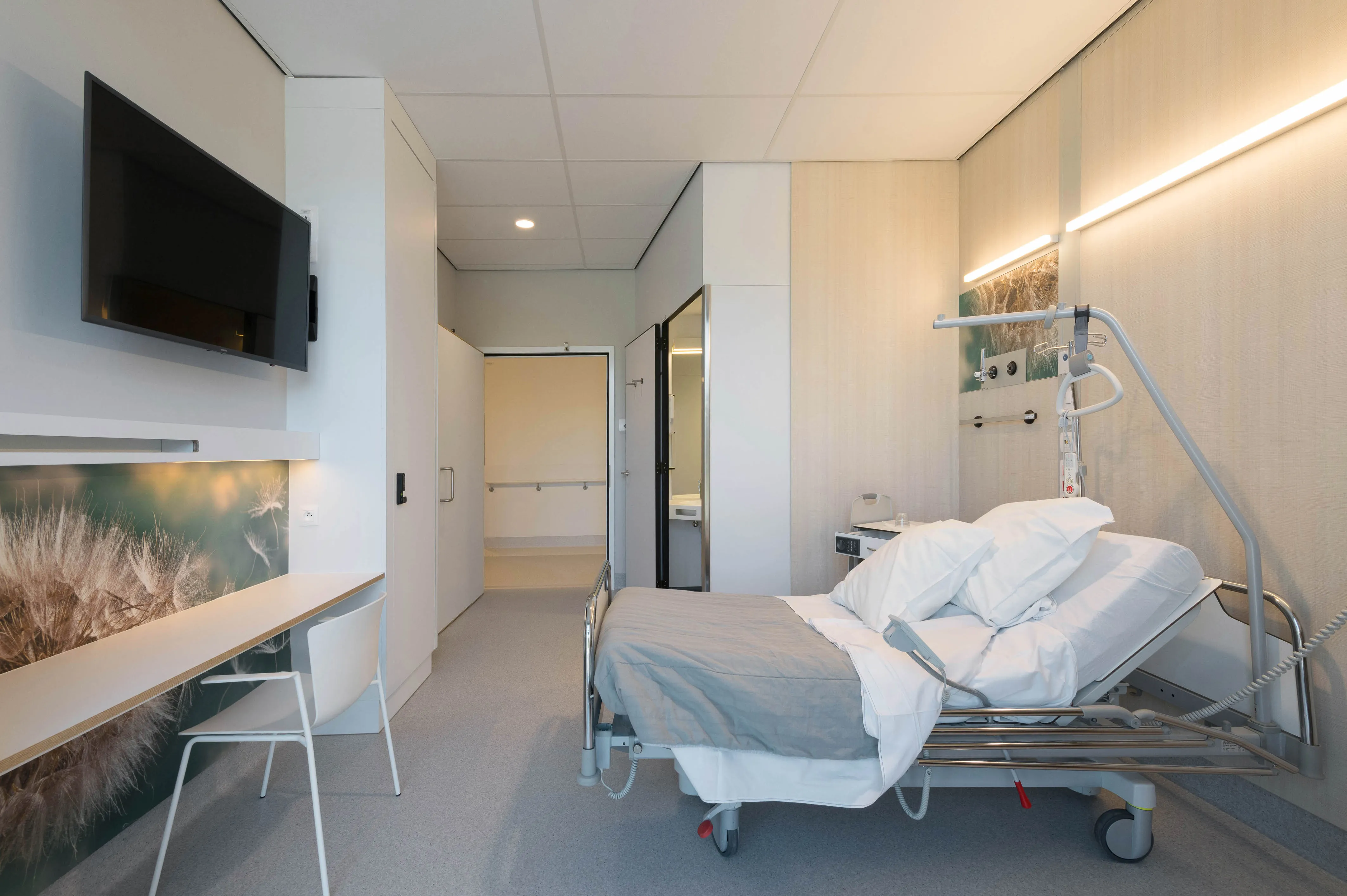
This is a two-bedded room with a toilet and shower, an area for caring for your baby and all the furniture you would find in a private room, except for the cot, as no-one else can sleep with you.
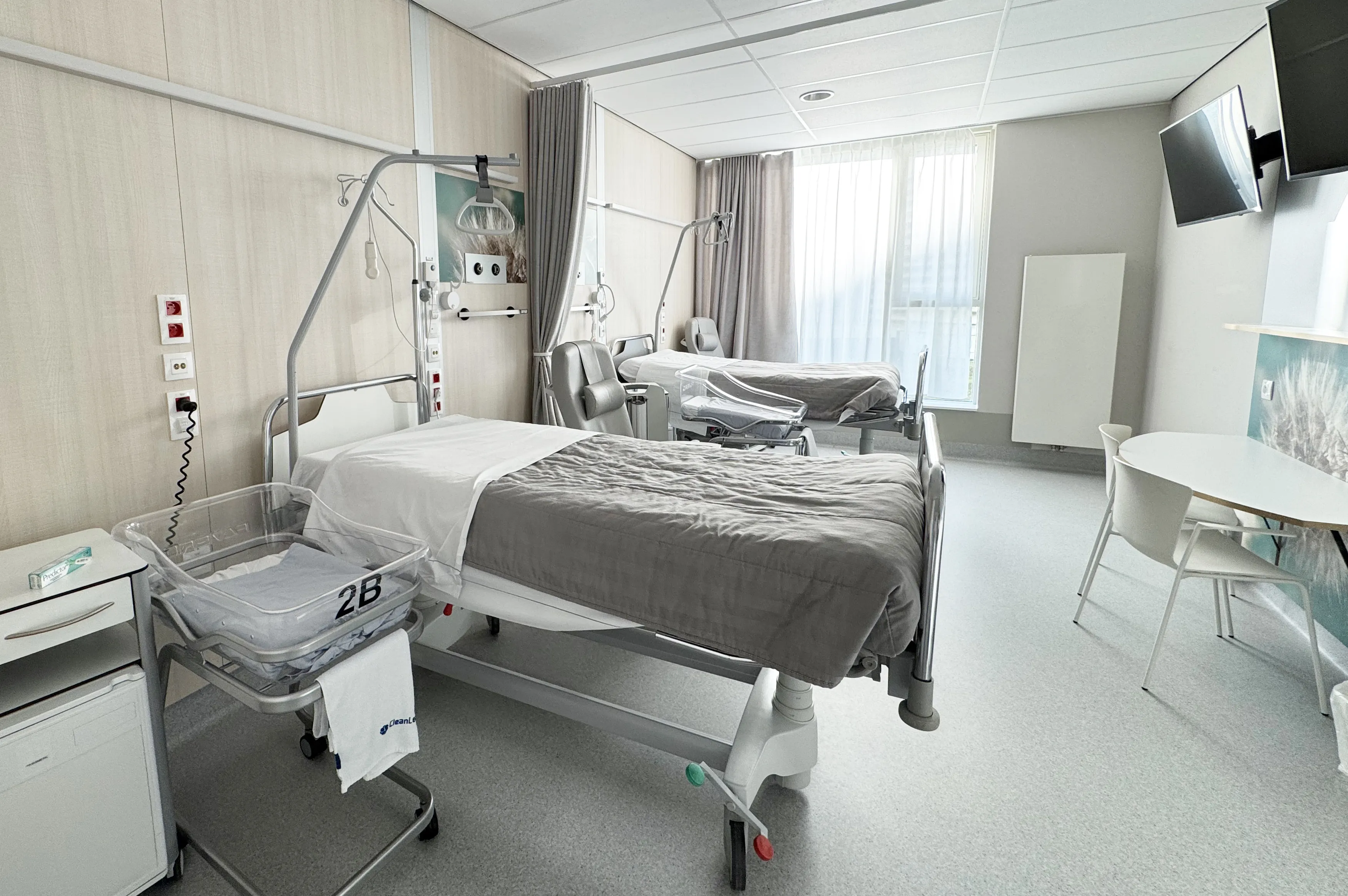
This type of room is larger.
There are two fridges, a more comfortable extra bed, a coffee machine and an electric kettle.
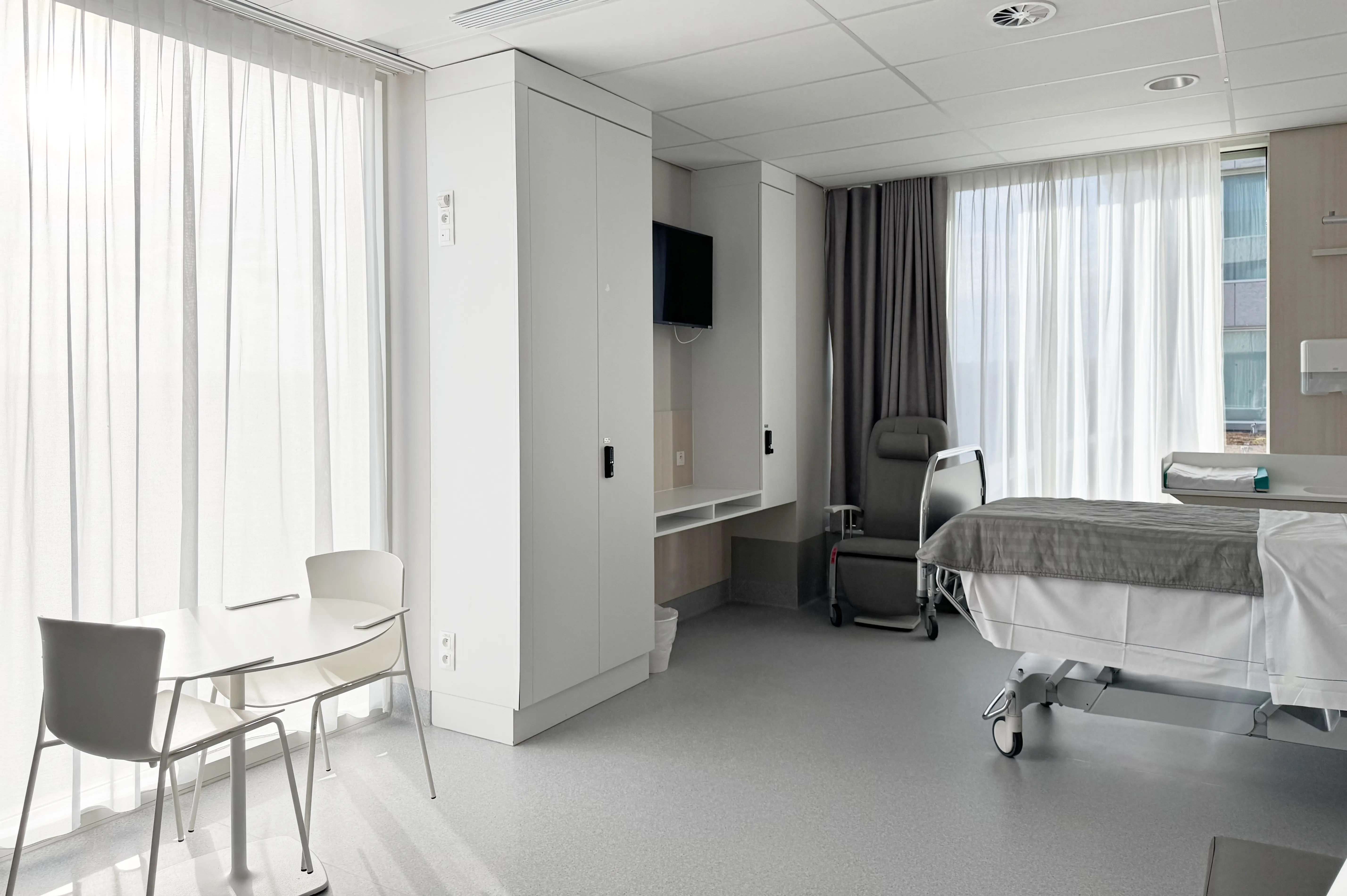
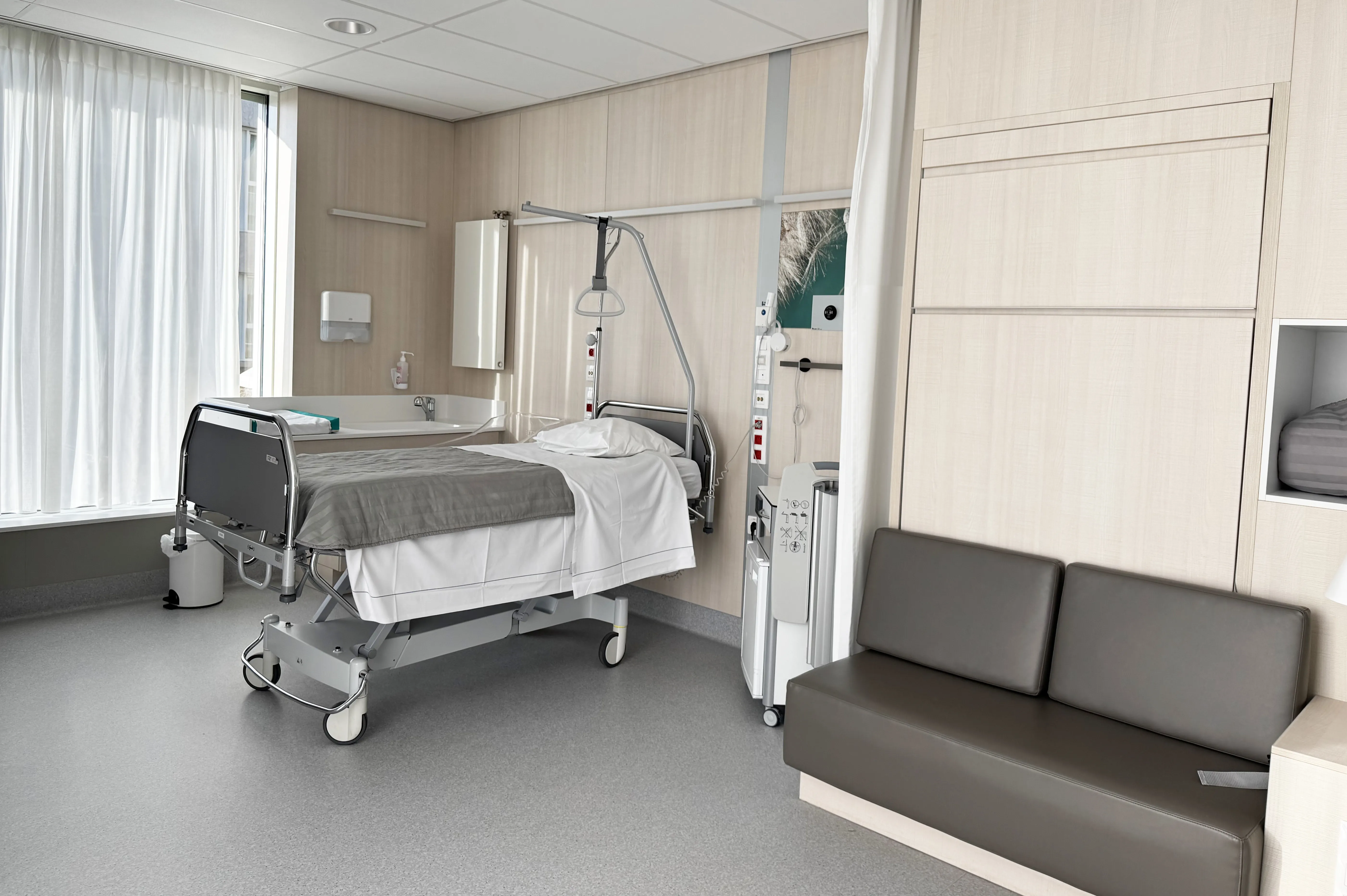
This room can accommodate a patient who has just given birth and her baby, who would normally have been admitted to the neonatal centre.
The possibility of monitoring in this room is determined according to certain criteria (stunted growth, blood sugar problems, etc.) and by the paediatrician on duty. Care is provided jointly by the maternity unit's midwives, neonatologists and paediatric nurses.
During your stay
After breakfast at around 8am, the midwife will visit you to take care of you and your baby:
- taking the temperature
- weight and colour control
- feeding monitoring
- ...
She will also do this at other times of the day and whenever you need her to.
Do not hesitate to bring your baby into ‘skin-to-skin’ contact, a magical moment, while ensuring their safety, of course.
Throughout your stay, you will receive information that you can find in the "Guide vers l'autonomie" that will be given to you on your arrival at the maternity unit.
During your pregnancy, and possibly in consultation with your gynaecologist, think about finding a paediatrician for your baby.
If you don't know a paediatrician, the one on the maternity ward will be able to advise you, as your baby should have a first paediatric appointment between the 5th and 10th day of life.
During your stay in the maternity unit, a medical examination will be carried out by the paediatrician on duty on the first day and on discharge.
The paediatrician will be on hand daily to answer any questions you may have.
Your gynaecologist, anaesthetist and physiotherapist will also visit you.
Lunch is served at midday and dinner at around 6pm.
Day or night, do not hesitate to call on the midwife. She will be on hand to support you in your new role, offer advice and answer any questions you may have.
Between the 2nd and 5th day of life, we take a control blood sample from your baby, known as a ‘Guthrie’ or neonatal screening test.
The purpose of this blood test is to detect certain pathologies such as hypothyroidism, cystic fibrosis and other rare endocrine diseases.
You will be offered a hearing test for your baby, carried out by speech therapists.
If you feel the need, you can meet our team of child psychiatrists or psychologists specialising in parenting at any time.
The role of the Perinatal Psychology Team
During your stay in the maternity ward, a medical examination by the paediatrician will be carried out on the first day and on discharge. The paediatrician will visit you every day to answer any questions you may have.
As soon as you return home, everyday life returns to normal.
Our paediatricians are on hand to answer any questions you may have.
Your baby will need regular check-ups during their first few years.
Monitoring growth and development, adjusting diet, vaccinations and the early detection and treatment of childhood illnesses all have a beneficial impact on your child's development.
Advice from our paediatrician
Additional information during your stay
The partner's role
Baby in the bath
Jaundice
Follow-up at home
You're no doubt delighted to be leaving the maternity hospital and, at the same time, perhaps a little worried, especially if it is your first baby.
Like most parents, you're probably dreading the moment when you find yourself ‘alone’ with your baby at home.
The first 24 hours may be a little more difficult as you and your baby adjust to your new life. It is therefore preferable to organise your return home in advance (presence of your partner or a third party, help with shopping and housework, etc.).
Do not worry, you will soon find your bearings and your new rhythm of life, far from the standards of maternity.
For your return home, we strongly recommend that you are followed up by a midwife. We will organise your first appointment together.
Do not forget to let us know if you made contact with a midwife during your pregnancy, as she may be able to follow up your post-natal care.
A final word of advice: in your guide to independence, you'll find the telephone number of the ward where you were hospitalised. If you feel anxious, you can always call this number and a midwife will answer your call, give you advice and reassure you.
Home care provided by our midwives
CONSULTATIONS AND PARENTING SUPPORT WORKSHOPS
For an appointment with a midwife or our lactation consultants at the Edith Cavell Medical Centre or the Delta Hospital, or if you would like home care, please call us on 02/434.17.50 (Monday-Friday: 9am-3pm).
Our midwife specialising in breastfeeding/lactation will give you practical information (breastfeeding, etc.), general information (baby's rhythms, skin-to-skin contact, mothering, breast congestion, manual expression) and the benefits of breastfeeding for you and your baby.
Book a personal appointment with a lactation consultant:
- Delta Hospital: 02/434.81.12
Edith Cavell Medical Centre: 02/434.81.01
The loss of a foetus or baby is a deeply upsetting experience. It requires real grieving work, which each person goes through in their own way, according to their own pace and timeframe.
This shared forum provides parents with support and counselling.
They will also be able to share their experience of loss with other parents who have been through a similar experience.
The groups are led by Dr Brigitte Sepulchre, a neonatologist at the Delta Hospital's Centre Néonatal Intensif, and Joëlle Rabinowitch, a psychologist with the Psy en Périnatalité team.
A baby's first experiences of life shape its developing brain.
Because of its rapid growth, the way we support it in movement and sensations will be decisive for its future health and well-being.
During this workshop, together you will find the gestures and different postures that will facilitate your baby's harmonious sensory, psychological and motor development.
You will also learn how to avoid positional problems such as plagiocephaly or brachycephaly (flat head).
We have produced a series of informative videos on the different stages of your baby's development over the months/years.
To discover these videos (only available in French), click here.

